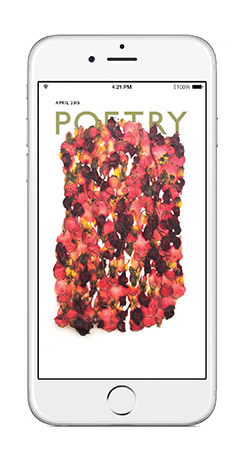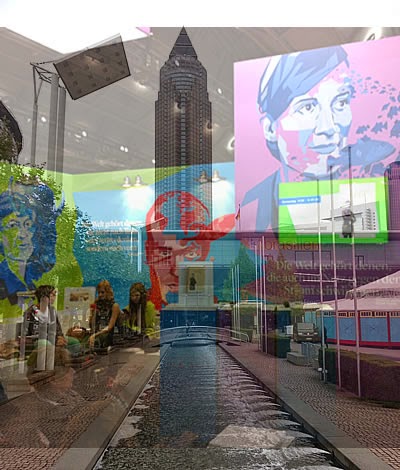
7 continents, 7 books, the next step: from the South Pole to ... Sweden and Germany
I started the 7 continents reading challenge well-planned in Antarctica, browsing books-from-Antarctica-lists and reading reviews. The book I picked was "Ice Bound" by Jerri Nielsen, I blogged about it here: global reading: Ice Bound (or: penguins, Antarctica, Endurance + how to count life)
For the next step, I tried a rather different, random approach: I went to our local telephone book box, and let myself be suprised by the books that were currently lined up there. I also brought some own reads in indirect exchange - and came home with thtree books.
The first is "Runaway Horse" by Martin Walser, who is a well-known author in Germany. But the real surprise was Carl Jonas Love Almqvist. I didn't know this author, and basically went with the cover, the note that it is a book about a journey, and the country of origin: Sweden. I haven't read a book from there so far, and with the Walser novella, this also neatly decided the next continent for the reading challenge: Europe.
So: the Almqvist book. Turns out, the book was originally published in 1839 in Sweden, and caused a scandal. The German edition I came across is a new edition, published in 2004. I guess Almqvist would have been thrilled to learn about the difference he made, and the still existing interest in his work - unfortunately, writing the book caused a downward spiral for himself, he lost his job,, even had to leave the country, and struggled ín exile. Here's more about him, and the book, from Wikipedia:
Carl Jonas Love Ludvig Almqvist (28 November 1793, Stockholm, Sweden – 26 September 1866, Bremen, Germany), was a romantic poet, early feminist, realist, composer, social critic, and traveller. "Sara Videbeck and the Chapel" is the English translation of Almqvist's most famous work, whose Swedish title is "Det går an" (lit. "It will do"). The novel is primarily an attack on lifelong marriage as an institution and the inability of women to become financially independent. The book's social tendency aroused lively debate and "det-går-an literature" became a concept. The controversy over the work, however, forced Almqvist out of his post as rector at the New Elementary School, Stockholm.The book itself is a novella, and surprisingly vivid to read. It also is a reminder how much society and cultural norms changed in Europe in the last 150 years - and how books had an important role in that process. Almqvist himself was inspired by Jean-Jacques Rousseau, whose political philosophy influenced the Enlightenment in France and across Europe.
But back to the back: as I browsed the links for it, I saw that it is actually available online in a place that is the very counterpart of the telephone book box: the internet library archive. Which host hundred thousands of files. Here is the link to it in the archive: Sara Videbeck and The chapel.
Now I just broswed the archive a bit, and was both amazed by its size, and overwhelmed by it. That's what's so nice about the phone box: it is simple, with maybe 200 books on its shelves. It's a good place to find books you never heard about, and read outside one's usual comfort zone, without being overwhelmed by choice. Here's a photo:

I discovered the book phone box 2 years ago, and wrote a longer note on it which also includes a book encounter of the sweet kind: "but there are no princess books"
Reading Almqvist also reminded me of the "Readwomen"-initiative, and my own resolution to read more books written by female authors. So that's another good global-reading match: the Antarctica book is written by a woman, and is a memoir. The European books so are written by male authors - the second book is Martin Walser's "Runaway Horse". Here's more about Walser and the book, from Wiki:
Martin Walser (born 24 March 1927) is a German writer. He became famous for describing the conflicts his anti-heroes have in his novels and stories. In 1998 he was awarded the Peace Prize of the German Book Trade in Frankfurt. His most important work is "Ein fliehendes Pferd" (English: A Runaway Horse), published 1978, which was both a commercial and critical success.
The book has an own story to it: Malser wrote it during a summer-holiday stay in Sylt, as a playful small work as he paused with the longer book he worked on. And it probably is both this playful touch and the parallel to his own character and stay there that added to its success: reading it, you wonder how much is fiction and how much is observing himself and the people he meets. Altogether, the book is about pretending - both between the partners in a marriage, and between "old friends" who happen to meet again. How much of the stories we share are truth, and how much is make-believe? It's a thought-provoking read, but for me, at some point the ongoing and growing pretention started to feel tiring, as it's only in the end that the truth is revealed - I guess personally I would have been interested to read more about how the characters deal with the end-of-pretend, both on their own and in the relation to the others. But then, it's a novella from start and concept, and leaving you with the open end and question is a skilfull turn, too.
*
The third book I picked brought a nice surprise, too: it's written by a German female author. And is set in Spain - which is where I am right now. I already started to read it, and will do a second half of the "Europe" reads in a seperate post..... which is now online here: island reads: The Humans, Life Lessons, Zerotime, The Hive
*
Reading Links
Here are some additional links:
- The reading challenge - it's open to join: 7 Continents, 7 Billion People, 7 Books
- The readwomen-initiative, which started in 2014: #readwomen2014 - can a hashtah change reading habits?
- World books I read so far, listed by country: Book list by country
- The previous global reading book blog post: New places and where to start + global reading: Ice Bound (or: penguins, Antarctica, Endurance + how to count life)









































